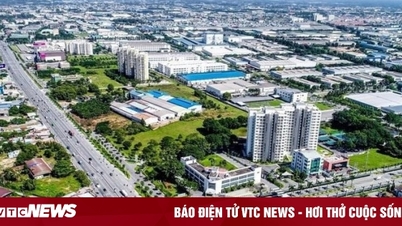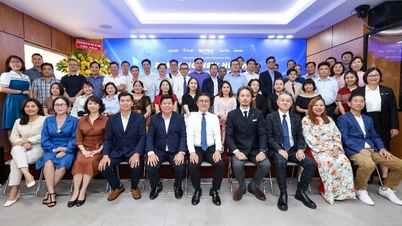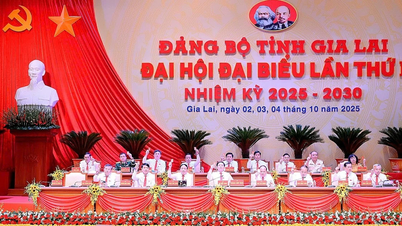
In a society that demands attention, phones become an indispensable item that helps people participate in the flow of recognition and be recognized - Photo: REUTERS
“A world of information overload will lead to attention poverty,” psychologist and economist Herbert A. Simon warned in 1971, according to Forbes magazine. Nearly half a century later, that prediction is being realized most clearly on social media.
New scarcity mechanism
The attention economy is shaping a new system where human value is not based on talent or assets but on the ability to attract and maintain attention. As views, likes, and shares are increasingly converted into opportunities, income, and even social status, we are witnessing the birth of a completely new “currency.”
At its core, the attention economy operates on a fundamental mechanism of scarcity: people’s time and attention are limited, while content resources are virtually unlimited. This makes attention a “currency” that all individuals and organizations compete to capture.
Social media platforms act as attention brokers, manipulating algorithms to keep users engaged for as long as possible and rewarding them with the most addictive content.
Those who succeed in attracting large amounts of attention can quickly convert it into fame, career opportunities, and profits — from content creators on TikTok and YouTube to brands leveraging viral marketing.
According to a 2024 report by researcher Maxi Heitmayer, this mechanism creates a sense of democratization of opportunity: anyone can become famous overnight.
Digital inequality
Yet, it is precisely this seemingly egalitarian element that has the potential to exacerbate social inequality. The “accumulation” of attention—namely, fame, followership, and prestige—requires a pre-existing foundation, social connections, and initial resources, similar to the process of capital accumulation in a money economy.
Celebrity children often find themselves in the spotlight early on, giving them a leg up in the race. Meanwhile, the vast majority of other users must constantly create content and maintain high levels of engagement to avoid being “abandoned by the algorithm” – a form of continuous, exhausting digital labor that is rarely seen as labor.
This makes the attention economy, despite its dynamic and open appearance, tend to create a clear stratification: a small group of “attention rich” hold great power and influence, while the majority play the role of feeding the system with their attention.
Not only is the attention economy reshaping the social structure, it is also quietly changing the way we see ourselves. In this system, attention is not only a means of exchange but also a measure of self-worth. Being noticed means being admired, while not being noticed means being forgotten and unrecognized.
Research has shown that online social comparison can lead to anxiety, depression, and low self-esteem, especially among young people. When attention becomes currency, these effects are amplified: users are forced to constantly maintain a compelling image to stay engaged, fear being “left behind” if they make mistakes, and endure a sense of failure when content falls short of expectations.
Furthermore, the attention economy encourages extreme behavior to shock and attract viewers, thereby creating a fiercely competitive environment that easily erodes authenticity in social communication. Community-oriented behaviors, which are difficult to "go viral," are often undervalued, while controversial or dramatic content is more likely to attract interactions.
The growing attention gap raises the question: is this a new form of digital inequality – where social opportunity and power are tied more to “hotness” than actual competence?
The attention economy is becoming the invisible infrastructure of our digital society, shaping how we communicate, work, and see our worth. And the question is, how much are we willing to trade for just one more glimpse?
Blurred boundaries
Another important consequence of the attention economy is the increasingly blurred line between work and private life. While the traditional labor model separates work and leisure time, the attention economy requires users to be “online 24/7” to avoid losing their place in the algorithmic flow.
This invasion not only threatens mental health but also reshapes lifestyle habits, personal relationships, and even the way each person constructs their identity.
Source: https://tuoitre.vn/nen-kinh-te-chu-y-khi-luot-xem-like-share-tro-thanh-tien-te-moi-20250911222637234.htm








































































































Comment (0)